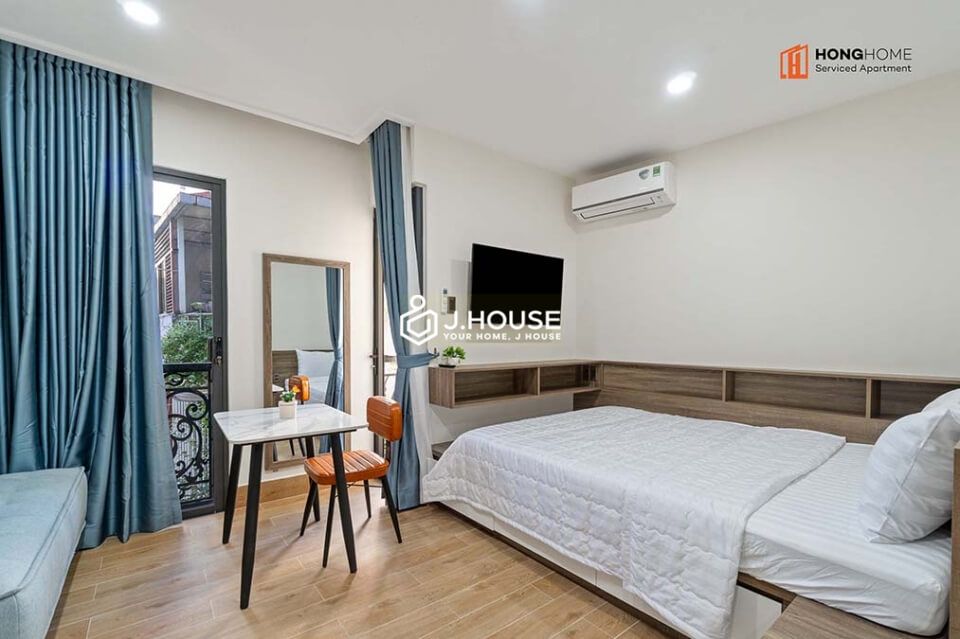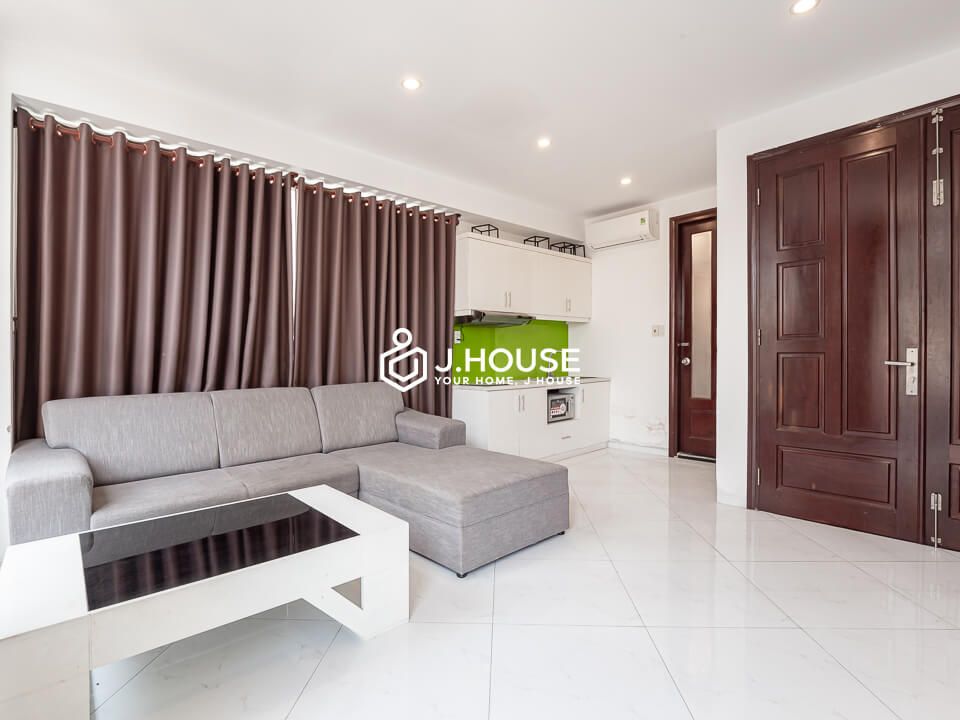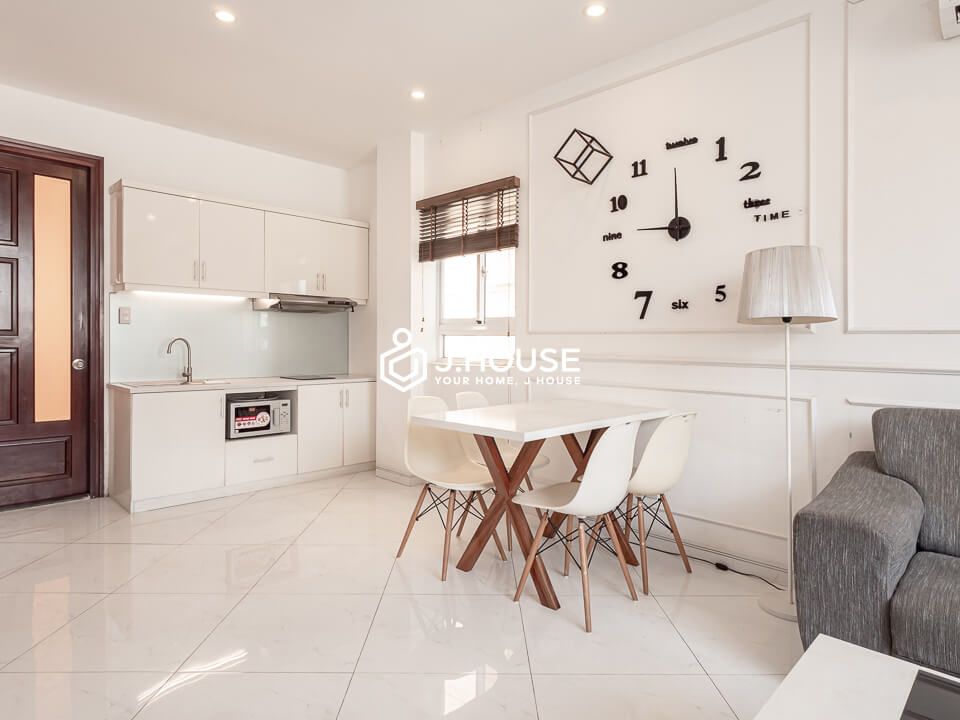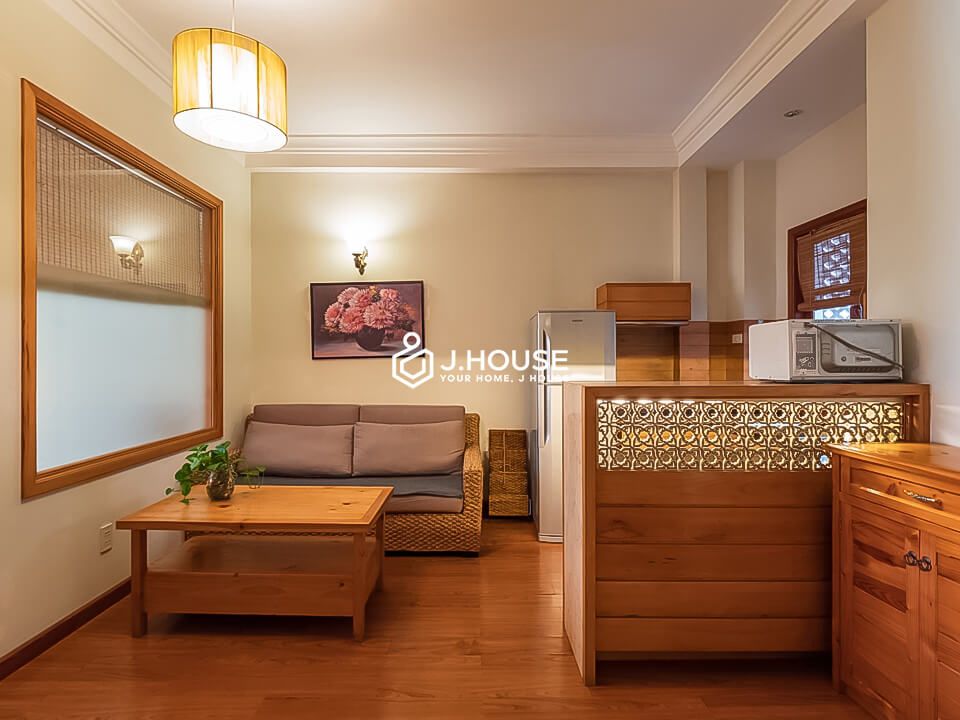Latest Properties
How to Negotiate with Landlords When Renting with Pets in Vietnam
Renting with Pets: How to Negotiate with Landlords in Vietnam
Renting with pets in Vietnam can feel exciting at first — until you have to negotiate with landlords. Many expats quickly face the same pain points: extra deposits, strict pet rules, or even flat refusals. Without clear communication, costs rise, restrictions pile up, and stress becomes constant.

The good news? With the right negotiation strategy, you can turn a tense process into a win-win, securing not just an apartment but also peace of mind for you and your furry friend.
In this guide, you’ll find proven tips, local insights, and practical strategies to help you build trust with landlords, avoid hidden pitfalls, and make renting with pets in Vietnam smoother, less stressful, and ultimately more rewarding for long-term living.
Why Negotiation Matters When Renting with Pets
To rent happily with pets in Vietnam, you need to know how to negotiate with landlords. Negotiation isn’t about conflict — it’s about creating common ground where both sides feel secure. Many property owners worry about noise, damage, or cleaning fees, while expat renters see pets as family members they can’t leave behind.
Clear agreements and open communication make a huge difference. They reduce misunderstandings, prevent hidden costs, and set fair expectations from the start. When done well, negotiation shifts the experience from stressful arguments to mutual trust, turning renting with pets into a smoother and more sustainable living arrangement. It’s not just about securing a lease — it’s about protecting your home, your finances, and the comfort of your furry companion.
How to Negotiate with Landlords Effectively
Approaching a landlord negotiation the right way sets the tone for your pet-friendly rental experience. Knowing how to negotiate with landlords effectively ensures a smoother, stress-free process and protects both your home and your furry companion. Here’s a step-by-step guide to help you approach every conversation with confidence and clarity:
1. Research Pet-Friendly Rentals in Advance
Begin by focusing on pet-friendly rental listings. Many condos, serviced apartments, and houses now clearly state their pet policies upfront, helping you target landlords open to discussion. This saves time and reduces surprises during negotiation.
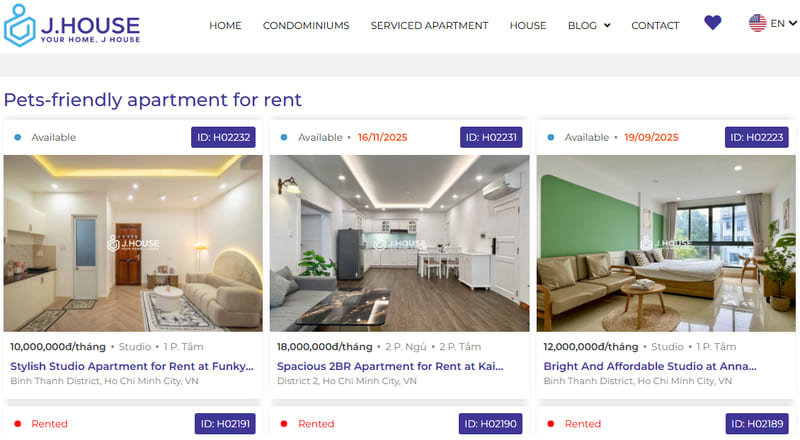
Pro Tip: Leverage local Facebook groups, expat forums, or agencies like JHouse to discover apartments that welcome pets, compare policies, and even learn about typical pet deposits or hidden costs of renting with pets before reaching out.
Read more: Pet-Friendly Apartments in HCMC: What You Need to Know
2. Understand Common Landlord Concerns
Before you negotiate with landlords, it’s crucial to understand their main worries. Most property owners in Vietnam are cautious about pets because of potential issues such as:
- Noise complaints from neighbors — barking or meowing can create tension in shared buildings.
- Damage to furniture or flooring — pets can unintentionally scratch or stain interiors.
- Extra cleaning costs after move-out — landlords want to avoid surprise expenses.
- Building regulations against certain animals — some condos or apartments have strict rules.
By recognizing these pain points, you not only show empathy but also build trust, making it easier to negotiate with landlords effectively. Anticipating concerns lets you propose solutions, from refundable pet deposits to agreed-upon cleaning measures, turning potential obstacles into a smoother rental experience.
Read more: Pet Etiquette in Apartment Living: Keeping Peace with Neighbors
3. Prepare Solutions Before Negotiation
The best way to negotiate with landlords effectively is to address their concerns proactively. Showing that you’ve thought ahead not only builds trust but also makes the conversation smoother. Here’s how to prepare:
- Offer a pet deposit in Vietnam — typically one month’s rent or a mutually agreed fee, reassuring landlords about potential damages.
- Share vaccination and training records — proving your pet is well-behaved and healthy.
- Commit to professional cleaning at lease end — reducing worries about extra maintenance costs.
- Suggest minor adjustments in the pet rental agreement — such as specifying allowed areas or pet behavior rules to protect both parties.
By preparing these solutions, you turn renting challenges with pets into a collaborative discussion, making it easier to negotiate with landlords and secure a home where both you and your pet can feel comfortable and welcome.
Read more: What Is A Pet Deposit? How Does It Work In Vietnam?
4. Put Agreements in Writing
When you negotiate with landlords, a handshake alone isn’t enough — clear documentation is essential. A written lease or contract protects both parties and reduces misunderstandings.

Make sure it explicitly covers:
- Whether pets are allowed — avoid surprises or sudden refusals.
- Deposit amount and refund conditions — including terms for potential damages.
- Specific restrictions — such as pet size, breed, or number of animals.
Clear, detailed paperwork not only safeguards you from unexpected disputes but also reassures landlords that you’re a responsible tenant. This simple step turns renting with pets into a stress-free experience, building trust and confidence from day one.
Read more: Best Pets for Apartment Living in Vietnam
Secondary Challenges Expats Face
Even when you know how to negotiate with landlords, renting with pets in Vietnam comes with unique challenges that expats often overlook:
- Landlord restrictions in shared buildings — some condos or apartments may prohibit pets entirely, regardless of your agreements.
- Variable rental rules by district or property type — policies differ between HCMC, Hanoi, Da Nang, and even between buildings in the same area.
- Hidden costs of renting with pets — from surprise cleaning fees to extra maintenance or repair charges.
By understanding these challenges in advance, you can anticipate potential obstacles, prepare solutions, and avoid both frustration and unexpected financial shocks. Planning ahead transforms renting with pets from a risky process into a smooth, stress-free experience for both you and your furry companion.
Read more: Hidden Costs of Renting with Pets: Deposits, Cleaning & Repairs
Long-Tail Tips for Successful Pet Renting
Knowing how to negotiate with landlords effectively requires preparation, empathy, and clear communication. Here are practical strategies tailored for expats renting with pets in Vietnam:
1. Show Responsibility with Documentation
Provide thorough proof of your pet’s health and behavior:
- Vet certificates and vaccination records
- Proof of flea/tick treatments
- References from previous landlords

This demonstrates that you’re a responsible tenant and reassures landlords, increasing their willingness to accept pets.
Read more: Pet Amenities in Vietnam: Grooming, Parks & Veterinary Clinics
2. Use Local Support
Language barriers can create misunderstandings. Bring a bilingual friend, translator, or a rental agent like JHouse to ensure smooth communication and avoid misinterpretations.
3. Focus on Win-Win Agreements
Frame the negotiation as mutually beneficial:
- Offer a refundable pet deposit if no damage occurs
- Commit to keeping neighbors undisturbed
- Consider signing a longer lease for stability, which landlords value
Following these steps makes renting with pets more predictable, builds trust, and turns potential conflicts into a smooth, long-term rental experience.
Read more: Living with Pets in Vietnam: A Complete Guide for Expats & Locals
Choosing a Pet-Friendly Area
Picking the right neighborhood is a key step when renting with pets in Vietnam. Living in a pet-friendly area makes landlord negotiations smoother, reduces the risk of hidden costs, and helps you avoid unexpected restrictions.

Starting in a favorable location gives you access to more open-minded landlords, encourages clear agreements, and ensures a more comfortable, stress-free long-term living experience for both you and your furry companion.
Read more: Top Pet-Friendly Districts in HCMC for Long-Term Renters
Common Pitfalls to Avoid
Even when you know how to negotiate with landlords, renting with pets in Vietnam can be tricky. Watch out for these common mistakes:
- Not Asking About Building Rules: Some apartments or condos ban pets entirely, even if the landlord seems open.
- Skipping Written Agreements: Without a clear pet clause, you risk sudden eviction or disputes.
- Ignoring Hidden Costs: Extra cleaning, repainting, or furniture repairs can appear at move-out if unplanned.
- Overpromising: Avoid unrealistic commitments, such as “no barking ever,” which may backfire.
Being aware of these pitfalls lets you negotiate confidently, set realistic expectations, and protect both your finances and your furry friend, turning renting with pets into a smoother, stress-free experience.
Read more: Expat Stories: Living with Pets in HCMC Apartments
How JHouse Supports Pet Owners
At JHouse, we understand that pets are family. That’s why we guide expats on how to negotiate with landlords when renting pet-friendly homes in Vietnam. Our team ensures clear communication, transparent agreements, and solutions that address common landlord concerns, from pet deposits to house rules.

We bridge cultural and language gaps, helping both landlords and tenants feel understood. Instead of stressing over renting challenges with pets, you can focus on creating a home where love, trust, and peace truly grow — for both you and your furry companion.
Read more: JHouse – Where Great Homes Meet Great People
Final Thoughts: Negotiating with Confidence
Learning how to negotiate with landlords isn’t just about saving money — it’s about protecting your lifestyle and ensuring a stress-free home for your pets. Renting with pets in Vietnam comes with unique challenges, but with preparation, clear agreements, and the right mindset, you can create a safe, welcoming space for both you and your furry companion.
At JHouse, we’ve seen firsthand how the right conversation transforms the rental experience. Approach landlords with empathy, clarity, and confidence, and you’ll secure not just a home, but peace of mind.
Ready to find your perfect pet-friendly home in Vietnam? Contact JHouse today and let us help you negotiate with confidence!
JHouse Content Team
The in-depth content development team on housing services for foreigners & Vietnamese in Vietnam. The content is simple, easy to understand, and logically arranged to bring readers useful topics and information from real experiences.







